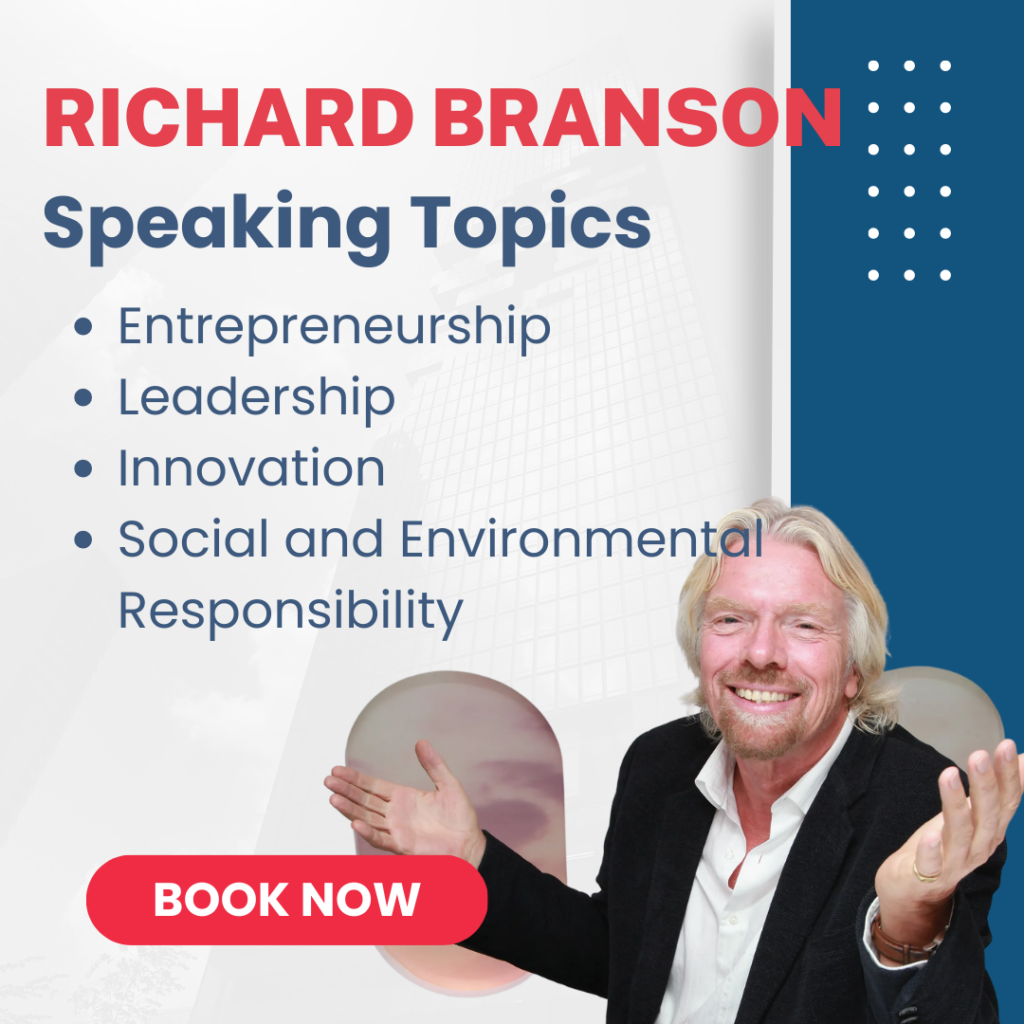
How Much Does A Keynote Speaker Make
Keynote speakers are in high demand these days. Companies, organizations, and event planners seek them out to inspire, educate, and entertain their audiences. But have you ever stopped to wonder how much a keynote speaker makes? In this article, we’ll explore the factors that affect speaker fees and the different types of keynote speakers. We’ll also discuss how experience and reputation impact earnings and examine additional revenue streams for keynote speakers.
Understanding Keynote Speaker Fees
First and foremost, it’s essential to understand that keynote speaker fees vary widely. Some speakers charge a few thousand dollars, while others can command six-figure sums. The fee a speaker charges depends on various factors, including their experience and reputation, the topic they’ll be speaking on, the location of the event, and the audience size.
Factors Influencing Speaker Fees
Experience is one of the most significant factors that affect speaker fees. Highly experienced speakers command higher fees because they have established reputations, a body of work, and a deep knowledge of their subject matter. They have spent years honing their craft and have likely spoken at numerous events, which has helped them build a strong network and a loyal following.
Additionally, celebrity speakers tend to be more expensive because they bring an established brand and large social media followings to their talks. These speakers have already built up a significant following, so they don’t need to work as hard to promote their talks. They also tend to have more demands, such as private jets, luxury accommodations, and high-end catering.
Location also plays a role in determining the fees that keynote speakers charge. Speakers may charge more to speak in areas with a high cost of living, high travel expenses, or be open to an increase in their usual fees for events that are more substantial and more prestigious. For example, a speaker may charge more to speak at a conference in New York City than one in a smaller, less expensive city.
Furthermore, audience size can also impact fees. Smaller audiences typically mean lower fees, while larger ones require more preparation, effort, and content preparation and necessitate higher fees. Speakers may also charge more for events that require them to customize their talks or create new content specifically for the event.
Fee Negotiation and Contracts
It’s not uncommon for event organizers to negotiate speaker fees, particularly in times of financial uncertainty. However, keep in mind that speaking engagements require time and effort, and speakers need to be appropriately compensated for their work. When negotiating with a speaker, it’s essential to be reasonable and professional. Both parties should agree on a fee and a contract before the event, making sure everyone is happy with the terms.
Contracts can be straightforward or detailed, depending on the complexity of the event and the requirements of the speaker. Ideally, the contract should include the agreed fee, date and time of the event, travel arrangements, accommodation stipulations, and the speaker’s backup compensation in case of cancellation. It’s also essential to include any additional requirements or expectations, such as audiovisual equipment, green rooms, or transportation.
Celebrity vs. Non-Celebrity Speakers
As we mentioned earlier, celebrity speakers tend to be more expensive than non-celebrity speakers. While both types of speakers bring different advantages, it’s essential to consider what type of speaker would best fit your event’s objectives and budget.
Celebrity speakers bring a large social media following old together with significant brand recognition, which can help boost event marketing and visibility. They can attract a broader audience and generate more buzz around the event. However, they may not be the best choice for every event, and their fees may be out of reach for some organizations.
Non-celebrity speakers may offer a more personalized experience, an original perspective, or a deep dive into a specific topic. They may be more affordable and easier to work with, and they may be a better fit for events that require a more intimate setting or a specific type of expertise. It’s essential to consider the goals of the event and the needs of the audience when selecting a speaker.
The Different Types of Keynote Speakers
Keynote speakers are an essential part of any event, conference, or seminar. They are the ones who set the tone for the event and provide valuable insights and knowledge to the audience. Keynote speakers are divided into different categories, and each brings different skill sets, knowledge, and experience to the table.
Motivational Speakers
Motivational speakers are the ones who inspire, challenge, and energize audiences. They provide audiences with a sense of purpose and encourage them to take action. Motivational speakers are often used to help employees increase confidence, improve morale, and achieve a specific goal. They use personal stories, anecdotes, and humor to connect with the audience and leave a lasting impression. A good motivational speaker can change the way people think and act, leading to positive changes in their personal and professional lives.
For example, a motivational speaker can help a sales team increase their productivity and sales by providing them with the necessary tools and techniques. They can also help individuals overcome personal challenges by sharing their own experiences and providing practical advice.
Industry Experts
Industry experts have in-depth knowledge and expertise in a particular industry. They offer insights and solutions to common problems and can provide current and future trends. Industry speakers are most commonly used at events where attendees have a particular niche or topic of interest. They provide valuable information and expertise that can help attendees stay up-to-date with the latest trends and developments in their industry.
For example, an industry expert in the field of technology can provide insights into the latest technological advancements and their impact on the industry. They can also provide practical solutions to common problems faced by technology companies.
Thought Leaders
Thought leaders are respected and renowned professionals in their respective fields. They have a deep understanding of their subject matter and provide insights into new trends and cutting-edge techniques. Thought leaders are often used at events where attendees aim to learn about the latest developments in their field or industry. They provide valuable insights and knowledge that can help attendees stay ahead of the curve.
For example, a thought leader in the field of marketing can provide insights into the latest marketing trends and techniques. They can also provide practical advice on how to implement these techniques in real-world scenarios.
Entertainers and Performers
Entertainers and performers bring a unique and entertaining element to any event. They add fun, excitement, and engagement to the audience and attract attendees to events. Entertainers and performers include comedians, magicians, musicians, and actors. They provide a break from the serious and informative nature of the event and add a touch of humor and entertainment.
For example, a comedian can provide a humorous take on a serious topic, while a musician can provide a relaxing and enjoyable atmosphere for attendees to network and socialize.
Overall, keynote speakers are an essential part of any event, and choosing the right type of keynote speaker can make a significant impact on the success of the event. Whether it’s a motivational speaker, industry expert, thought leader, or entertainer, each type of keynote speaker brings its own unique value to the event.
How Experience and Reputation Impact Earnings
Being a keynote speaker can be a lucrative career, but it requires a lot of hard work, dedication, and perseverance. Experience and reputation play a crucial role in determining speaker earnings, and building a strong portfolio and professional brand is essential for success.
Building a Speaker Portfolio
Building a speaker portfolio is the first step towards establishing yourself as a successful keynote speaker. It is a collection of your past speaking engagements, achievements, and expertise that showcases your skills and abilities as a speaker. A well-crafted speaker portfolio can help you stand out from the competition and attract more speaking opportunities.
When creating a speaker portfolio, it’s important to highlight your best work and provide evidence of your accomplishments. You can include testimonials from past clients, videos of your speeches, and any other relevant information that demonstrates your expertise and credibility.
It’s also important to tailor your portfolio to your target audience. If you’re targeting a specific industry or niche, make sure your portfolio reflects that. For example, if you’re a motivational speaker targeting the corporate world, your portfolio should showcase your experience speaking at corporate events and your ability to inspire and motivate employees.
The Role of Speaker Bureaus
Speaker bureaus can be an excellent resource for keynote speakers looking to expand their reach and secure more speaking opportunities. They act as agents for speakers and help connect them with event organizers and conference planners.
Working with a speaker bureau can be particularly beneficial for less experienced speakers who may not have a large network of contacts in the industry. Speaker bureaus can provide guidance and support in negotiating fees and contracts, and can help speakers navigate the complex world of event planning and management.
However, it’s important to note that speaker bureaus do take a commission from the speakers’ fees, which can range from 20 to 30 percent. It’s essential to carefully consider the pros and cons of working with a bureau and ensure that it’s the right choice for your career goals.
Marketing and Self-Promotion
Marketing and self-promotion are vital for keynote speakers who want to establish themselves as top earners in the industry. A strong social media presence, a professional website, and a network of professional connections can all help promote your brand and attract new speaking opportunities.
Social media can be an excellent tool for promoting your brand and connecting with potential clients and event organizers. Platforms like LinkedIn, Twitter, and Instagram can help you showcase your expertise and provide valuable insights to your followers.
Having a professional website is also essential for building your brand and establishing credibility. Your website should showcase your portfolio, highlight your speaking topics and areas of expertise, and provide contact information for potential clients.
Finally, building a network of professional connections can help you stay up-to-date on industry trends and connect with potential clients. Attend conferences and events, join professional organizations, and engage with other speakers and industry leaders to build your network and establish yourself as a thought leader in your field.
Additional Revenue Streams for Keynote Speakers
Book Sales and Royalties
Many keynote speakers have published books on their expertise, which can provide additional revenue streams. Books can be used as marketing tools, and royalties can provide income long after a speaking engagement has ended.
Workshops and Seminars
Workshops and seminars can provide speakers with additional income streams. These events enable speakers to engage with attendees on a more intimate basis, offering more personalized experiences, training, and opportunities for networking.
Consulting and Coaching Services
Many keynote speakers offer consulting and coaching services, providing additional revenue streams. These services allow speakers to leverage their expertise and impart knowledge and strategies for their audiences to implement.
Online Courses and Webinars
Online courses and webinars are becoming increasingly popular, offering speakers new streams of income. These digital formats allow for flexibility and offer a global reach that can expand a speaker’s audience and brand recognition.
Wrapping Up
Keynote speakers can earn a considerable income by charging for their services. However, the fee a speaker charges depends on various variables. Keep in mind that experience, reputation, and objective factors, such as location and audience size, all influence applicable fees. Other factors like marketing and branding also play a vital role in determining earning potential. Keynote speaking can offer an exciting and lucrative career for individuals who are passionate about their subject matter and who have a desire to inspire, educate, and entertain audiences all around the world.




